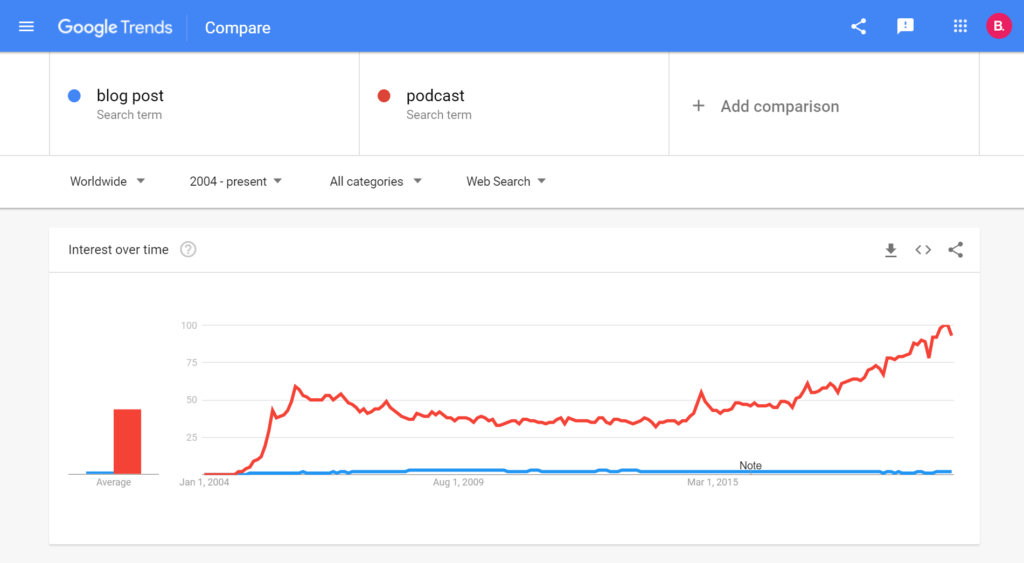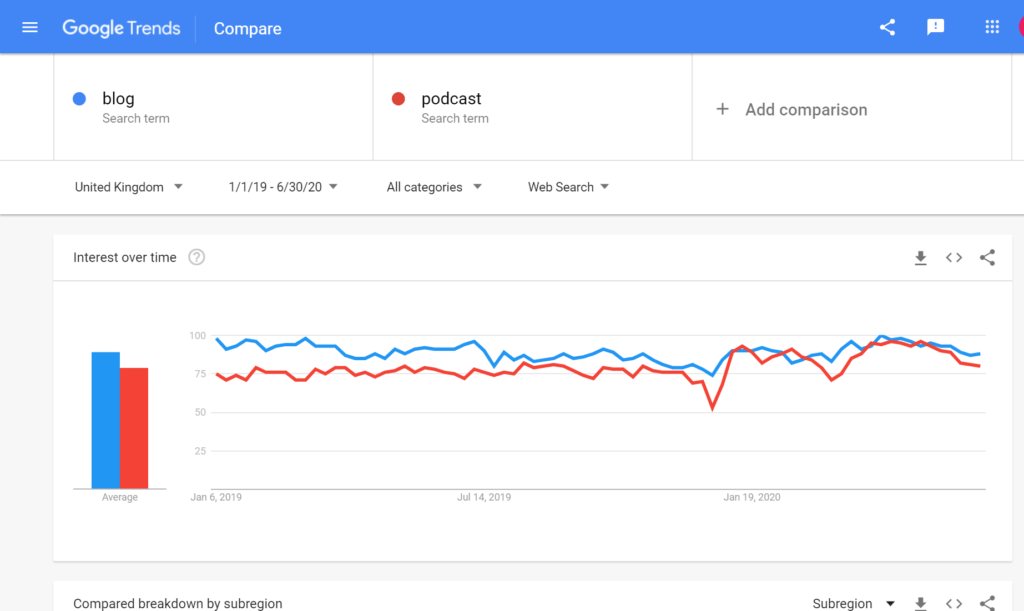Why the sudden rise in interest?
Apart from us all having a little more time on our hands many high-profile personalities realised that they needed to find a new way to engage with their audiences. This was at a time when many of their live productions were either being postponed or cancelled and the only viable outlet was to take on the virtual stage. They have since elevated the humble podcast as an effective way to communicate and engage on a large scale. The investment amongst some of the world’s leading media owners has also recently surged to unprecedented levels.
- 2012: Apple Podcast App – The forefather of podcast streaming and are now considered to be the most popular podcast app. Apple hosts over 750,000 shows and 24 million episodes worldwide a year.
- 2018: Spotify – recent acquisitions has made it become the second largest podcast platform.
- 2019: Sony – begun to fund its own podcasts on its audio service.
- 2019: Google – since the beginning of 2019, Google has displayed individual episodes in their search results.
- Content providers – have begun to move into the podcast industry. For example, WarnerMedia launched its own podcast network using audio content from a number of sources, including CNN.
However, in spite of the recent race amongst the world’s biggest audio brands, Google’s relatively late entrance into the marketplace is slightly misleading since they have talked about making audio searchable for some time now. Back in the beginning of 2018, Zach Reneau-Wedeen of Google’s podcast team detailed the company’s plans to prioritise audio in the same way it had done for text, images and video content.
Historically they could only be displayed in the SERPs when the title of a specific episode was searched for but, with the inclusion of podcast metadata, they can now be returned when broader topics and/or people are searched for.
From the example below we can also see that in today’s SERPs, podcasts can secure greater visibility from rich results and can even be directly consumed within the results page. This increased indexation is largely down to Google’s pronounced advancements in their AI and Natural Processing Language (NPL) capabilities.
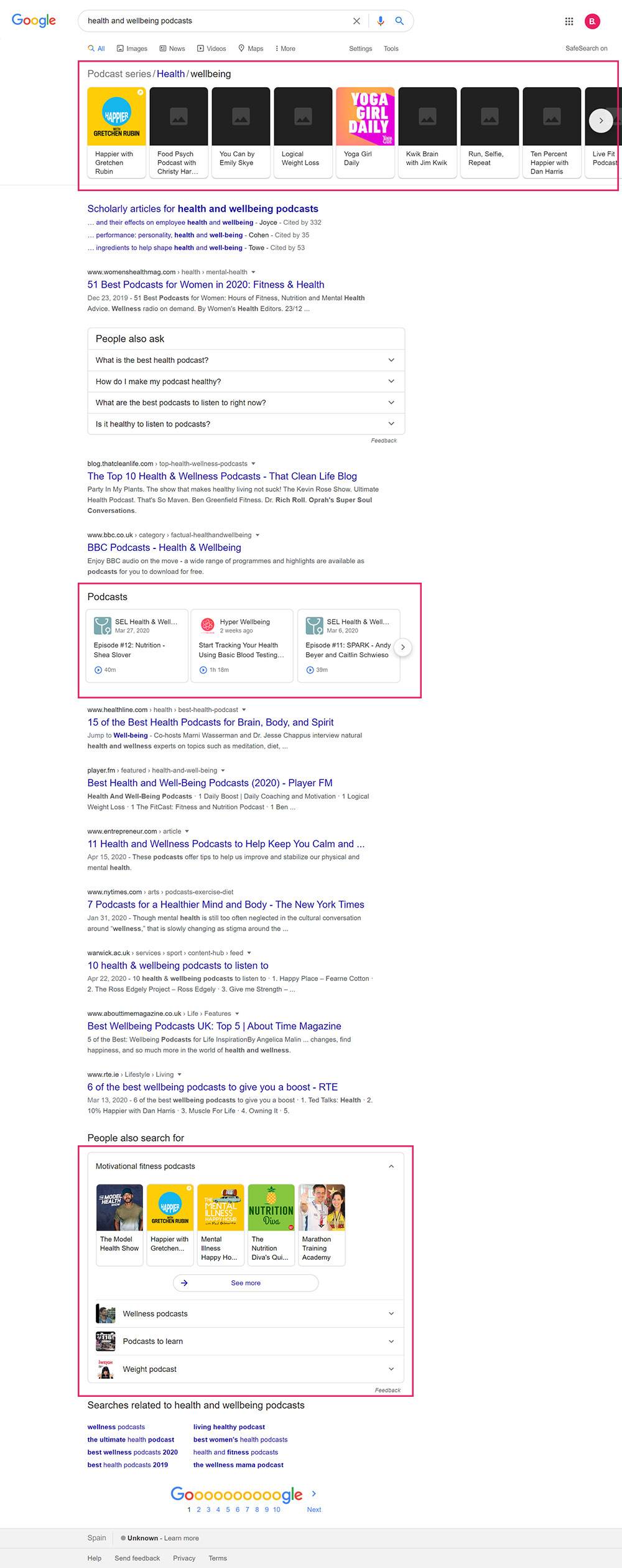
Podcasts as marketing collateral
There are more businesses than ever using podcasts to communicate to target audiences. Aside from authentically positioning you (the business and the producer) as the trusted expert, they provide a unique opportunity to engage with people over an extended period of time. Building an editorial strategy across the entire customer journey remains an essential ingredient for success and the value of a podcast channel is undeniable. Even so, it remains a relatively untouched arena which is well worth capitalising upon.
There are a few things to take into account when it comes to optimising your podcasts. They are:
1. Understanding where Google can index your content
The first thing you need to know is that the search engine displays podcasts through many of their proprietary products:
- Google Search
- Google Search App
- Google Home & Google Nest
- Google Assistant
- Android Auto (a smart driving companion, powered by Google Assistant)
2. What content should you be creating?
Just like any other form of written content, the baseline begins with understanding trending topics and conducting keyword research.
If you already use a keyword research tool like Google’s Keyword Planner then you will be able to discover relevant search terms around your main content themes. As always, it’s important to produce relevant and timely content that’s engaging and shareable. Whilst podcasts often feel like a casual conversation they still need to have a principal theme and a clear structure. This will help to convey the quality of your production and will help listeners to understand the overall focus and flow of an individual episode. In turn, this will help Google to accurately match search intent to the podcasts you create, thereby increasing the chance that your show(s) will be served in the organic results.
3. Keyword optimisation
Following on from your keyword research you can apply the standard optimisation principles. Select a primary keyword (based on estimated monthly search volumes and/or search intent) to describe an individual episode. As your target this should be incorporated in the podcast URL, title and shownotes (I will explain what these are shortly).
Even when someone discovers a podcast channel, they won’t necessarily listen to every episode so it’s important that these elements are clear, descriptive and appealing. Whilst titles can be up to 255 characters long, 75% of all podcast titles are just 29 characters or shorter. As an example, ‘Optimise Podcasts For Search’ is 28 characters long and would unambiguously conveys what the episode will serve.
Meanwhile, support your audio content with its very own “blog post” or transcript. These are referred to as shownotes. They are introductory summaries which offer you a chance to describe the topic(s) covered in a couple of paragraphs. Next and below the audio player, you go into more detail about the show. This will include the main points covered in the show and a little explanation around them.
Thinking one step ahead, these posts can support your wider editorial and internal linking strategies. This is due to being able to link to complementary articles and guides that are already on your website – you can even link to featured products. Alternatively, you can reference people who have been mentioned in or taken part in the audio. This is one effective tactic that can be added into your arsenal of outreach campaigns.
The format of these posts though should be similar to writing a book – with distinct chapters and a table of contents. You can even split topics covered in an individual podcast into timestamps, thereby helping users to find their answers more quickly.
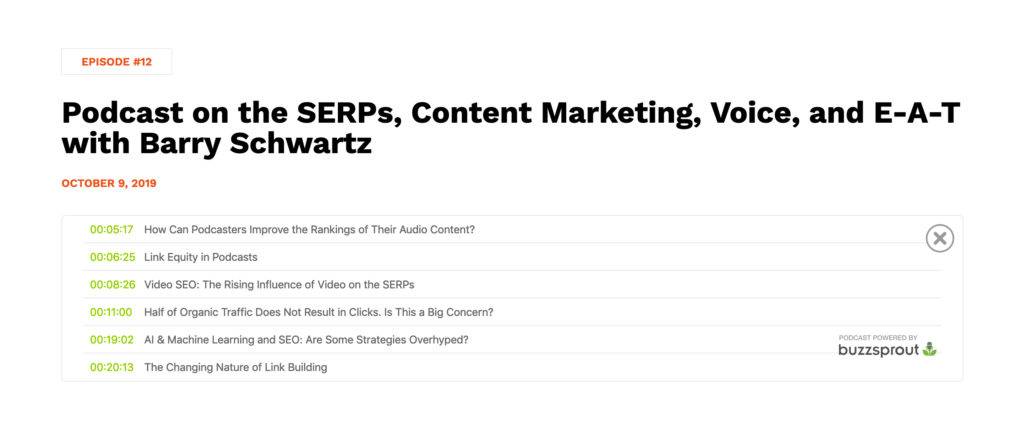
While this will not guarantee top SERP visibility we know that Google rewards well organised and accessible content. It also makes it easier for the search engine to pick up the main themes and focus keywords for indexation and allows listeners to find salient pieces of information about a given episode. It too will increase your chances of ranking for long-tail search queries and, over time, will help you to attract additional listeners through organic search.
4. Create a transcript
Transcripts provide an effective way to add long-form content to your website. This can then go onto improving indexation and accessibility, particularly amongst those who are hard of hearing.
Interestingly, Google can automatically transcribe and parse audio content. Google Podcasts extrapolates this information for use in its metadata and it’s widely held that this is the primary way the search engine can serve podcasts for individual search queries.
But Google is not perfect at it and it is not yet available for all languages. Producing a transcript yourself will, therefore, allow the search engine to understand each podcast in far more detail and with greater accuracy.
If you prefer to make short, focused episodes and you are presenting on your own then it shouldn’t take too long to produce. But either way, the advantages of making a transcript far outweighs the time involved and there are a host of open-soured tools that can help transcribe sound files. Here are some suggestions:
1. Otranscribe
2. Express Scribe
3. FTW Transcriber
4. Inqscribe
5. Transcribe
One word of caution here. You will still need to do some editing in order to ensure your target keywords are included and any “ums” and “uhs” are omitted from the transcript. This will improve the readability of the text and your E-A-T signals.
5. Schema markup
You can enable your podcast to appear in Google Search and Google Podcasts, along with individual episode descriptions and an embedded player for each podcast using the schema.org PodcastEpisode markup.
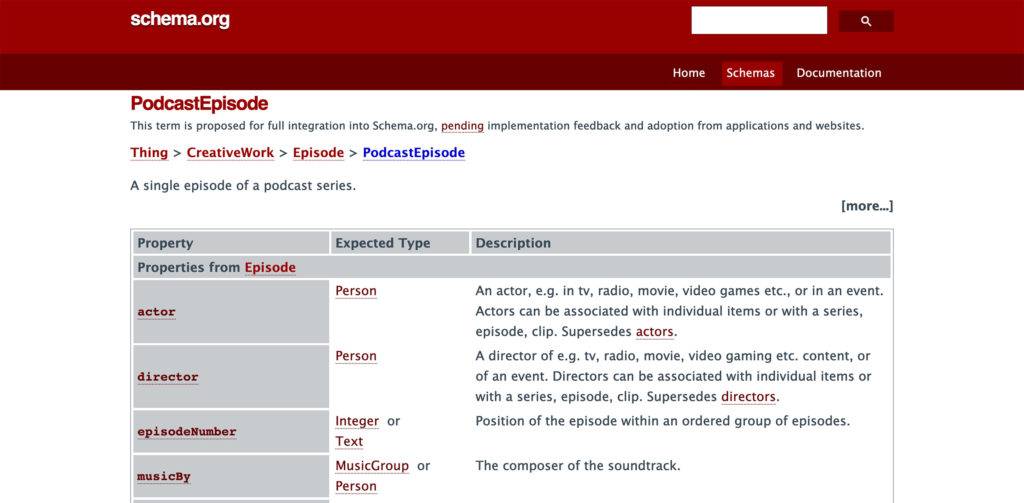
6. Submit your podcasts
To increase the likelihood that users see a carousel of episodes in the search results an RSS (2.0 specification) feed should fit at the heart of podcast distribution. Podcast hosting services are increasingly offering automated solutions but it’s, nevertheless, worth noting that there are a series of channel level and episode level tags that are required to describe your audio content. Using the title of this article as if it were a podcast, here is an example of how the tags should be constructed:
<?xml> version= "1.0" encoding="utf-8"?>
<rss version="2.0">
<channel>
<title>The Organic Digital Blog</title>
<link>https://builtvisible.com/rss.xml /</link>
<description>SEO podcast</description>
<item>
<title>Optimise Your Podcast For Search</title>
<description> A list of ways to optimise podcasts for organic search and increase the number of followers</description>
<enclosure url="ht/etps://builtvisible.com/episode1.mp3" ength="212469" type="audio/mpeg"/>
</item>
</channel>
</rss>*note: the length tag denotes to the size in bytes of your media file.
There are additional, albeit optional, tags which can help provide more information about your podcast. These include:
<author>
This contains the email address of the author
<category>
A list of keywords so the item can be in one or more categories
<comments>
Allows you to provide a page for comments and encloses the URL in the comments tags
<pubDate>
State the publication date of the episode in RFC 822 format. This should look like Friday, 15 Feb 2020 14:30:00 GMT
<source>
Contains the RRS channel from which the item comes from
This RRS feed needs to be hosted on a podcast homepage within your website. Rather than waiting for Google to find and index your podcast homepage and RSS feed you need to submit the page to Google’s Podcast Publisher Tool. If you do not have a homepage then you should manually request the RSS feed to be indexed. Once verified, the episode will be available in the Google Podcasts App and will be eligible for all the search display opportunities Google has to offer within a week.
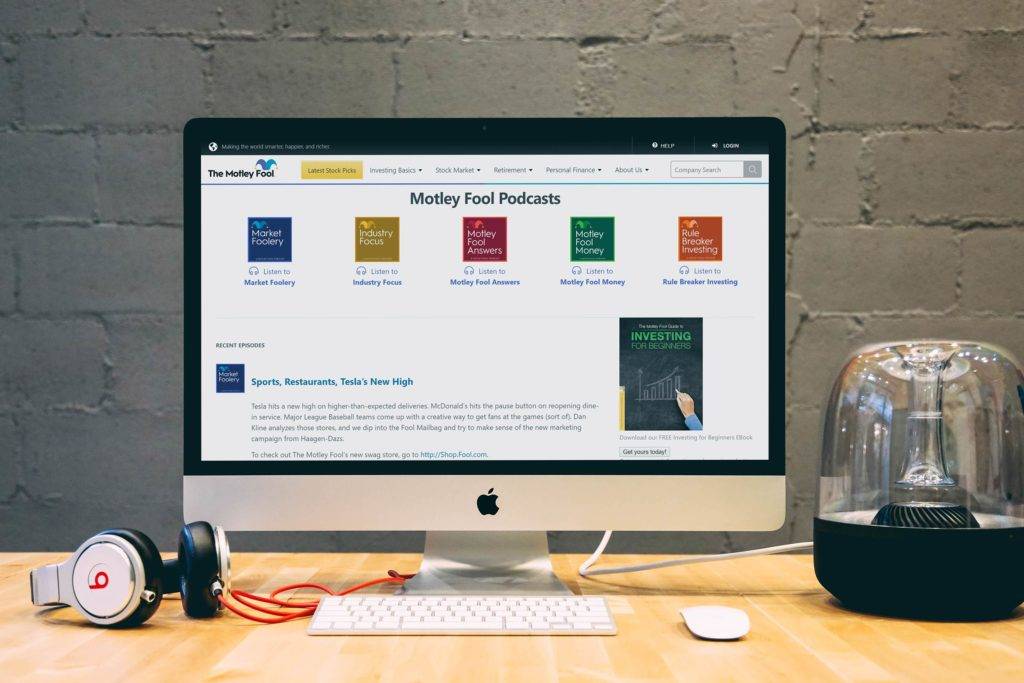
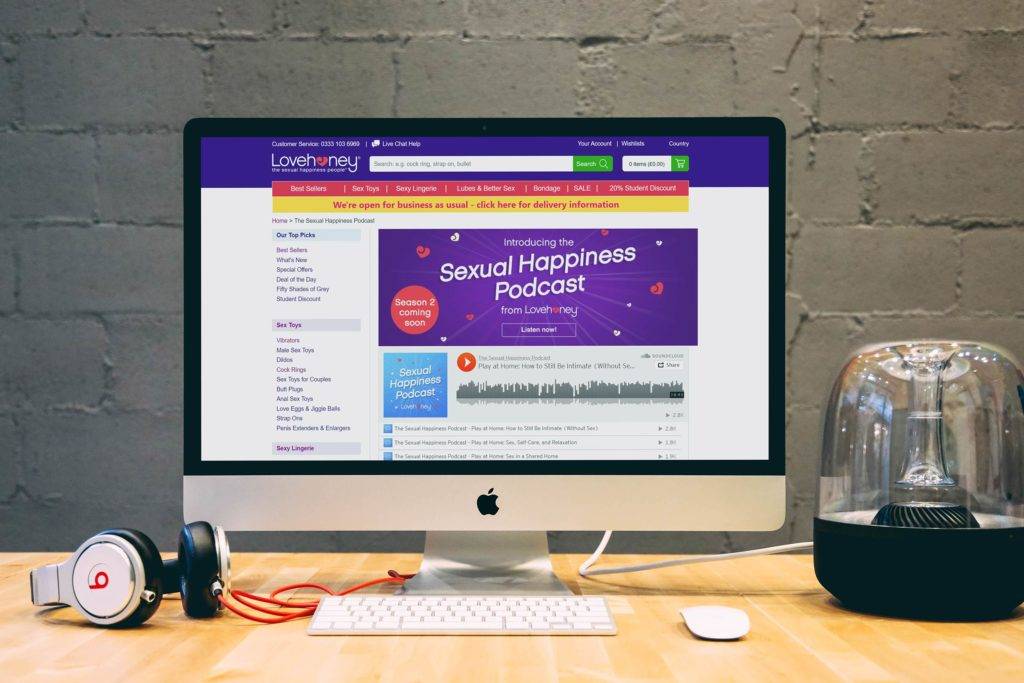
Measure your success
Thanks to Google Podcast Manager we can access listening data.

Here we can view channel and episode level analytics. At the moment it takes two to three days for the data to be displayed but once it comes through you can assess a series of metrics for up to 16 months:
Meaningful play – when a unique user listens to an episode (or segment) at least once for more than 5 seconds in a single day
Total plays – total number of meaningful plays for an episode. Multiple listens of the same show on the same day are counted once
Play time – total played minutes of meaningful plays
Plays in first 30 days – total number of meaningful plays for an episode in the first 30 days after the published date. Repeat listens in the same day are ignored
Average played – averaged percentage an episode is listened to by all listeners
Published – episode publication date declared in the RSS feed. This may not reflect when Google first found your feed and made it available on a Google Podcasts platform
Audience retention – establish how many unique listeners tuned into a specific segment. Listening event timestamps are based on the actual time a user listens to an individual show yet, because an episode can include variable-length segments (e.g. ads) the times shown in the retention chart are only estimates. Nevertheless, the data can help identify where listeners drop off and which parts are the most popular. From here you can refer to the accompanying embedded player to figure out why these patterns are occurring. This can later inform your content and production decisions
In summary, podcasts are a real SEO asset for any marketing department. In a time when footfall and site conversions are likely low, it’s time to broaden your horizon and allow podcasts to grow your organic opportunities. Producing complementary onsite content, applying basic keyword optimisation tactics, using structured markup and submitting your podcast RRS feed directly to Google’s very own Podcast Manager will set you on your way to success.
Helpful resources
Podcast Publisher Tool
Google Podcast Manager
Podcast Schema Markup
Google Support – Podcast Publishers
Google’s Podcast Preview
Search Engine Land
Podnews
